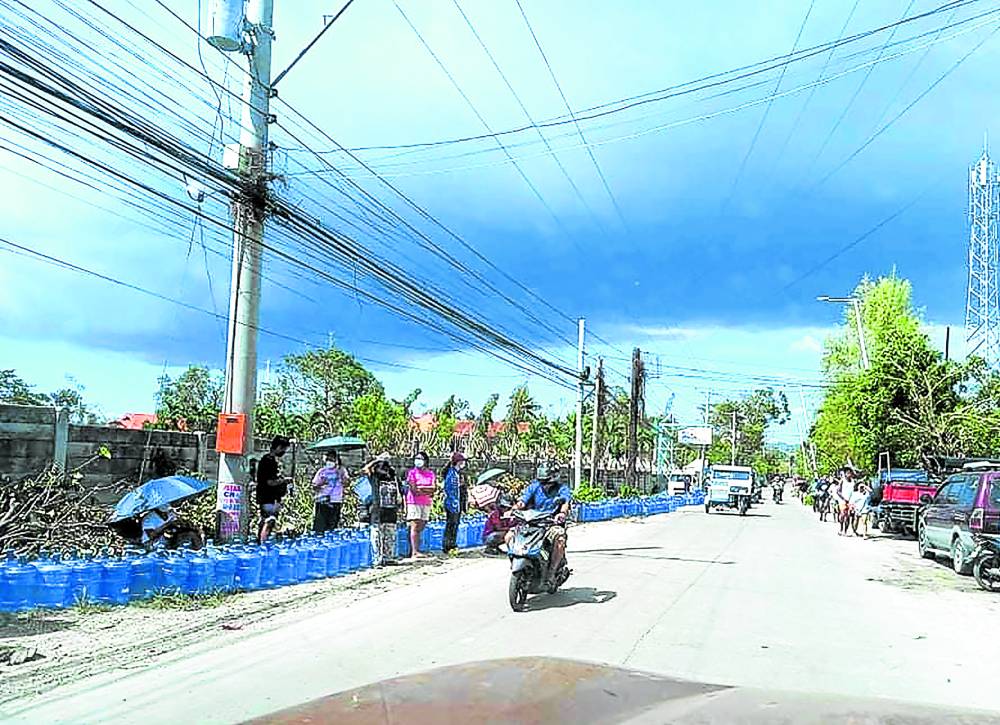
GRIM BLUE LINE A long queue of plastic water jugs has formed along a road in Tagbilaran City in Bohol province, as residents yet to recover from the trauma of Typhoon “Odette” (international name: Rai) face another creeping calamity—a shortage of basic supplies. —AFP
The Department of Trade and Industry (DTI) has directed its regional offices to go after business owners profiteering from consumer goods in the aftermath of Typhoon “Odette.”
Asked for monitoring updates on Tuesday, Trade Secretary Ramon Lopez told reporters that there had been accounts of overpriced bottled water and generation sets in Cebu and Negros Occidental. He did not mention figures.
Profiteering occurs when a basic necessity or a prime commodity is sold at a price “grossly in excess of its true worth,” according to the Price Act. Under current rules, there is evidence of profiteering when a product is sold at a rate 10 percent higher than its price in the previous month.
“I have instructed our Consumer Protection Group and Regional Offices to immediately check the retailers and apprehend business owners who are profiteering and unduly increasing prices of consumer goods, especially at this time when we are recovering from the damage caused by Typhoon Odette,” Lopez said in a Viber message.
“We will not allow the public to be taken advantage of by unscrupulous individuals and we will not hesitate to file charges against [them] to the full extent of the law,” he said, pointing out that violators could be fined and jailed for a year.
He urged the public to report these cases to the DTI through its hotline 1-384; 0917 834 3330, or via email to ConsumerCare@dti.gov.ph.
There is no word yet on the prices of goods in other areas devastated by Odette. But the Price Act allows for an automatic price freeze in certain cases, such as when an area is declared under a state of calamity.
$500-million loan
Some local government units have declared a state of calamity, but Malacañang has yet to do so.
A declaration of a state of calamity by the national government will allow the country to use a $500-million loan that was provided by the World Bank last November.
President Duterte earlier said that government coffers had been depleted by the COVID-19 pandemic. It is not clear why this loan is not being touched, or how much of it would be used, if at all.
The World Bank said last month that “the country can access funds upon the declaration of a state of calamity by the Republic of the Philippines due to an imminent or occurring natural catastrophe or a declaration of a state of public health emergency.”